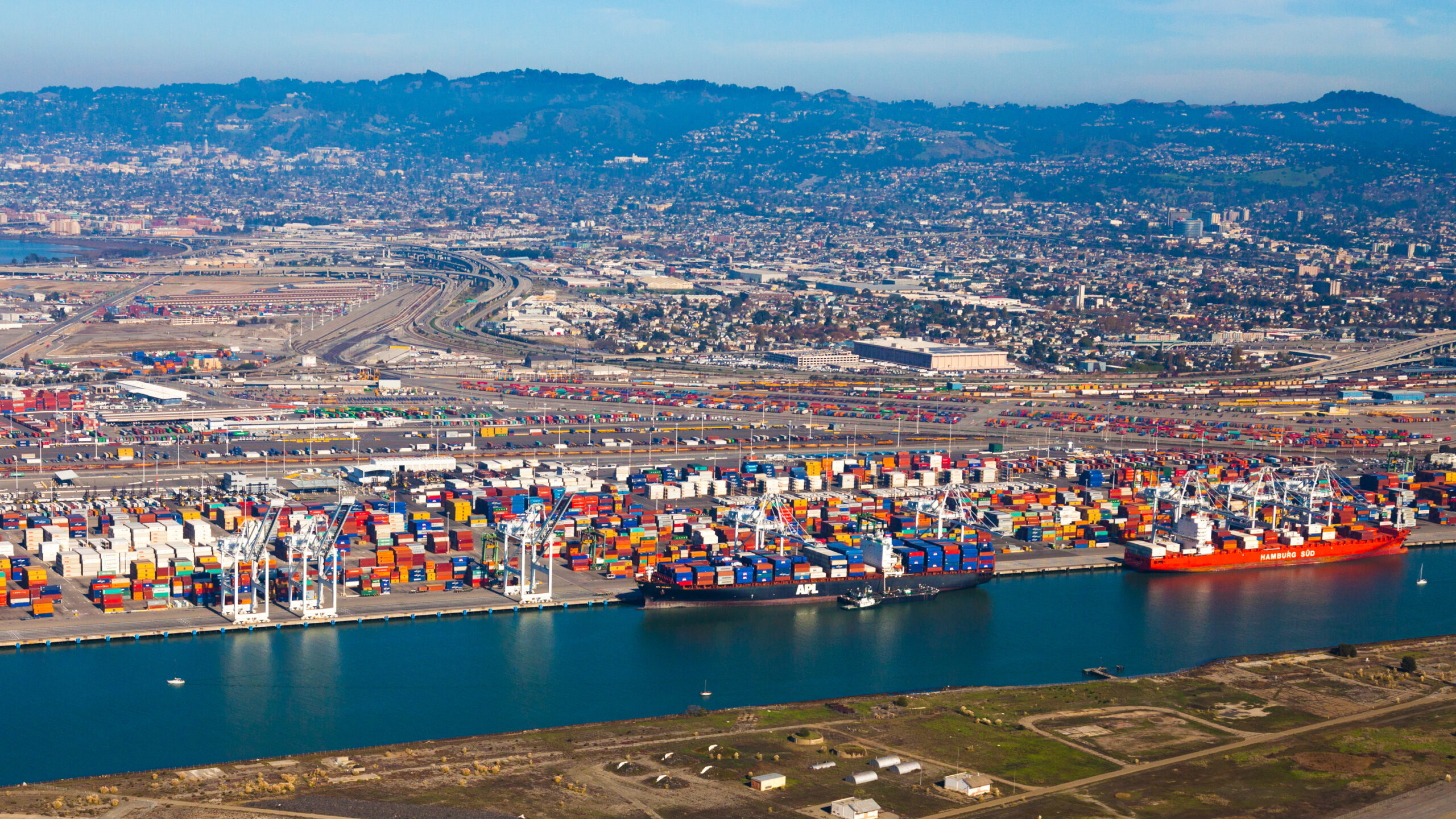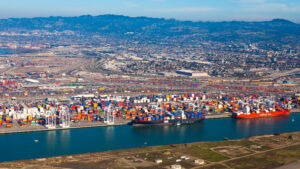The softening of proposed port fees on China-built and operated ships importing goods into the US has reduced the risk of severe congestion and upward pressure on freight rates, according to Oslo’s Xeneta, the ocean and air freight intelligence platform.
The announcement by the Trump Administration on April 17, saw changes to the original proposal.
Significantly, the fees will now be levied on a net tonnage basis per US voyage, Xeneta says, rather than cumulative fees for every port the ship calls at.
The plan unveiled on the United States Trade Representative (USTR) website offered a 180-day grace period as the applicable fees will be set at $0.
Emily Stausbøll, Xeneta senior shipping analyst, said: “We must look carefully at the potential impact of the revised port fees, but changes will be welcomed by the ocean container shipping industry given the significant criticism levelled at the initial proposal during the public hearing.
“The fact fees will not be imposed on every port call is particularly important because it lowers the risk of congestion had carriers decided to cut the number of calls on each service into the US. This port congestion had the potential to cause severe disruption and upward pressure on freight rates.
“Despite the softer approach in the revised proposal, costs could still be very high for Chinese carriers and carriers operating Chinese-built vessels – particularly for ships with the largest capacity.
“The 180 days before fees become effective is an opportunity for these carriers to revise how fleet is used across alliance partners. If they can avoid using the largest China-built ships on US services, they could minimize the impact greatly.
“The latest announcement should still be viewed in the context of the original proposal, which offered dire consequences. The situation has changed for the better, but it isn’t a great victory for the ocean container shipping industry because these fees still add further pressure at a time when businesses are already trying to navigate the spiralling tariffs announced by the Trump Administration.”
The Trump administration on Thursday finalised port fees on Chinese vessels docking in the US, a move which comes as the US and China are locked in a major trade war over Trump’s tariffs and could further rachet up tensions.
The phased plan targets Chinese-owned, operated and built ships, and fees will be incrementally raised over the following years.
The proposal follows a months-long investigation, which included USTR convening a two-day public hearing, receiving nearly 600 public comments, and consulting with government agency experts and USTR cleared advisors.
The new proposals will not come into effect for 180 days but after this period, fees will be levied on Chinese-owned and operated vessels based on net tonnage per U.S. voyage, and will be increased incrementally over the following years.
Fees will also apply to operators of Chinese-built ships based on net tonnage or containers, which will also be increased incrementally over the following years.
A fee will also target foreign-built car carrier vessels based on their capacity with the aim to incentivize U.S.-built car carrier vessels.
The first phase of the policy will take effect in 180 days. A second phase, targeting foreign-built liquefied natural gas (LNG) vessels, is scheduled to be implemented in three years.
The USTR said a second phase of actions will begin in three years to favour U.S.-built liquified natural gas (LNG) vessels. These restrictions will rise incrementally over the following 22 years.
In addition, USTR is seeking public comments on the proposed tariffs on ship-to-shore cranes and other cargo handling equipment, in line with the President’s maritime executive order.
“Ships and shipping are vital to American economic security and the free flow of commerce,” said Ambassador Greer. “The Trump administration’s actions will begin to reverse Chinese dominance, address threats to the U.S. supply chain, and send a demand signal for U.S.-built ships.”
Leaders of the United Steelworkers and the International Association of Machinists and Aerospace Workers, two unions -among others- that called for the investigation that led to Thursday’s announcement, applauded the plan and said they were ready to work with the Congress to reinvigorate domestic shipbuilding and continue fighting for high-quality shipbuilding jobs across the country.
“The IAM Union is pleased to see meaningful remedies put forward to reinvigorate domestic shipbuilding,” said IAM International President Brian Bryant, who recently testified at the USTR’s hearing on section 301 proposed remedies.
“We will continue to work to ensure these policies are properly implemented so that we are successful in creating high-quality jobs for IAM members in the shipbuilding and ship repair industries,” Bryant said.
The revisions tackle major concerns voiced in a tsunami of opposition from the global maritime industry. Forecasters warn of global repercussions as Washington takes aim at China’s shipbuilding dominance.



